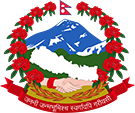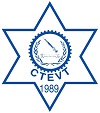
Dakchyata: TVET Practical Partnership and Sakchyamta projects, both delivered as part of the European Union Technical and Vocational Education and Training (TVET) Practical Partnership programme (EU TVET PP), celebrated the end of the two projects. The closure event showcased key learnings from across projects and demonstrated that it has provided strong and sustainable foundations for Nepal's TVET sector reform and growth.

EU Ambassador to Nepal, H.E. Nona Deprez, said, “I want to highlight this meaningful partnership between the private and public sectors that has been achieved through these projects. It’s great that there is a collaboration with and within the 5 employer associations. This program was designed to invest in human capital to increase employment opportunities and we are proud that this has been an inclusive program, and expect that achievements and progress made in the TVET system will be institutionalised.”

Dr. Hari Lamsal, Joint Secretary, Ministry of Education, Science and Technology acknowledged the achievements made by both projects, and reaffirmed the Ministry and the European Union TVET Practical Partnership have shared a productive relationship over the last 6 years. He added both projects have gained some best practices that can be further modelled into the TVET system and urged all concerned parties to share those practices.
One of the key highlights of the event was a presentation on TVET Sector Reform Strategic Plan (TSRP) by Chuman Babu Shrestha, Team Leader, Centre of Public Policy Dialogue, who highlighted that TSRP plan has proposed a transformation of major TVET performance areas. He stressed on the importance of a Green TVET system and mentioned that the content of TVET should focus on renewable energy, energy conservation and efficiency, air quality and water resources and pollution.

Ms. Shahida MacDougall, Country Director, British Council Nepal mentioned that Nepal’s graduation from LDC status and the economic growth that will provide a better future for its people will depend on successfully reforming the provisions of skills training to its workforce and sustaining these essential changes into the long term. She highlighted Dakchyata has contributed in bridging the gap between the private sector and TVET, improved the relevance of the TVET sector based on market needs, created a more inclusive TVET environment for all learners, and set the scene for long-term greening of TVET.

Mr. Jeeb Narayan Kafle, Member Secretary, CTEVT, stated, “Important milestones have been achieved in the TVET sector particularly in strengthening the capacity development of CTEVT, making relevancy through engaging employer in the development of employer led TVET curriculum and skills standards, improving the quality assurance and accreditation system of CTEVT, and building an effective coordination and collaboration with public-private partnership of TVET stakeholders for effective program implementation in all levels”.

Sumit Kedia, Member, FNCCI, also a presenter at the event emphasised that the private sector is a crucial partner and leader in the design, and delivery of high quality relevant TVET and that their meaningful involvement must continue in all areas of TVET.

Mr. John Mountford, Team Leader, Dakchyata, in his closing remarks while thanking all involved parties said, “The key themes driving our project are partnerships and collaboration between the public and private sectors and these two themes will help produce effective trainees in the industry sector. We also realise the need for development partners and agencies to continue making partnerships in Nepal’s TVET system and the TVET system needs to be engaged with communities at all levels.”
During the event, participants advocated on the need to put an emphasis on the value of a quality assured, inclusive, green and employer engaged TVET sector while trying to strike a balance between the supply and demand within Nepal’s skilled employment market.

The program was attended by high level participants from the Ministry of Education, Science and Technology, the delegation of the European Union to Nepal, CTEVT officials, British Council, private sector bodies and employers among others.
In addition, together the projects are sharing and celebrating its impact through a week-long series of online and physical events. The week from 14-18 November is designed as Festival of Learning, which celebrates the impact of the TVET PP programme, and recognises and supports the sustainability of initiatives introduced over the programme period. This impact event is part of the Festival of Learning.

Dakchyata: TVET Practical Partnership programme is a project implemented by the British Council and Sakchyamta by CTEVT is part of the TVET Practical Program programme. Both projects are funded by the European Union to contribute to Nepal's inclusive and sustainable growth through investment in human capital and by creating better employment opportunities in agriculture, construction and tourism sectors.











